Rights Groups Say Iran’s Raisi Must Stay On US Sanctions List
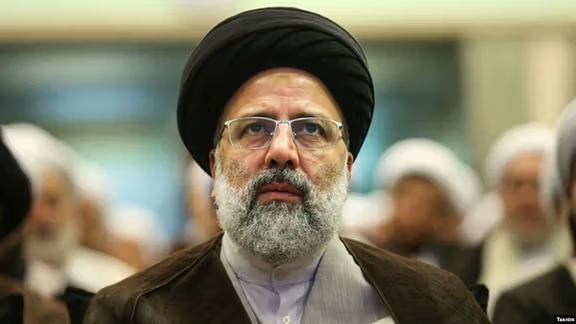
Nine human rights organizations have called on world powers negotiating with Iran in Vienna “not to lift human rights sanctions on the Islamic Republic of Iran.”

Nine human rights organizations have called on world powers negotiating with Iran in Vienna “not to lift human rights sanctions on the Islamic Republic of Iran.”
The group, including the Netherlands-based Center for Human Rights in Iran, issued a statement Friday told world power trying to revive the 2015 Iran nuclear deal they should be “maintaining” sanctions against Iran’s President Ebrahim Raisi.
Raisi was designated by the United States in 2019under an executive order signed by President Donald Trump allowing sanctions against anyone linked to the office of Iran Supreme Leader Ali Khamenei. The rights’ groups’ statement attributed Raisi’s listing to his role 31 years earlier in the 1988 prison executions, which the US Treasury cited in its press release announcing the designation.
Iran, backed by other participants, has argued that talks in Vienna should stick to the original logic of the 2015 deal, the JCPOA (Joint Comprehensive Plan of Action), in isolating the nuclear from other issues.
The rights groups statement said US “human rights sanctions” were imposed due to “the Iranian government’s egregious rights violations and abuses,” and that Raisi had “personally participated in ‘Death Commissions’” in 1988.
Hadi Ghaemi, executive director of the Center for Human Rights in Iran, said: “We cannot sacrifice human rights at the mantle of the nuclear negotiations with the Islamic Republic.”
as/ms
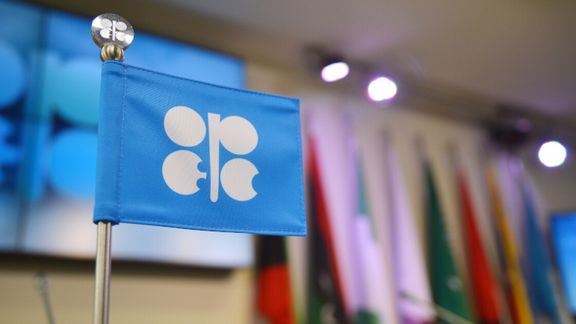
OPEC and its oil exporting allies will integrate Iran into their oil supply accord should a nuclear agreement be reached in Vienna and US sanctions lifted.
Quoting sources close to the group the report said OPEC+ seeks to avoid market share competition that could hit prices.
A successful outcome to the talks will lift United States’ sanctions on Iran's exports, according to the International Energy Agency, potentially bringing 1.3 million barrels per day (bpd) of Iranian oil back into the market. That could ease tight global supply and take some heat out of a rally that has taken benchmark prices to just a few dollars short of $100 a barrel.
Iran has been under full US oil sanctions since May 2019, and it was under partial sanctions from mid-2018. Its finances and the economy have suffered gravely as a result, and it is eager to sell as much crude as possible once sanctions are lifted.
The sanctions have also made Iran exempt from the existing export limit deal between the Organization of the Petroleum Exporting Countries and allies, known as OPEC+. While that exemption allows Iran to boost output, OPEC+ would eventually seek to bring Iran into the accord, sources said.
"It is very likely OPEC will adjust Iran into the deal, as there is no other option," an OPEC+ source told Reuters, who added that an agreement on reviving the nuclear accord looked close.
A source familiar with Iranian thinking said Iran would first seek to restore its lost output, but would likely, after talks with OPEC+, agree to a quota. Iran is one of the five founding members of OPEC.
Iranian officials are trying to restore they market share with previous customers like South Korea, Japan and India. Contacts and talks have already begun to coordinate post-sanction shipments.
Iran is pumping about 2.5 million bpd, some 1.3 million bpd less than in 2018 when former US President Donald Trump withdrew the United States from the nuclear accord and re-imposed sanctions, drastically cutting Tehran's oil income.
"With the lifting of sanctions, Iran will increase its oil production according to its facilities, capabilities and interests, to compensate for its lost oil revenues," the source familiar with Iranian thinking said.
"In my opinion, OPEC+ will set a quota for Iran's oil production but will apply it gradually, and Iran will accept the quota with some bargaining to show its support for OPEC."
'OPTIMISTIC' ON IRAN ISSUE
OPEC Secretary General Mohammad Barkindo, asked if OPEC+ would work out a new supply agreement that included Iran, said the group's track record gave grounds for confidence.
"Having survived the last five years since the establishment of the historic partnership between OPEC and non-OPEC that helped us to navigate through two oil cycles, we have every reason to remain reasonably optimistic going forward," he told Reuters.
OPEC+ is gradually boosting oil output after making record cuts in 2020 when demand collapsed due to the pandemic. But it has failed to hit its target because some producers did not make the investment or do the maintenance needed on oilfields during the pandemic to keep those facilities ready to increase output quickly.
For the United States, it would make sense to lift the sanctions on Iran to help lower prices given the domestic pressure the administration of President Joe Biden is facing due to rising inflation. The United States may also be considering that any output from Iran would ease the impact on global oil markets of any conflict between Russia and the Ukraine, a source familiar with Russian oil thinking said.
"The US will surely lift the sanction from Iran as soon as they decide to put more pressure on Russia given the current tensions over Ukraine," the source said. "Iranian oil will cool oil prices."
Reporting by Reuters
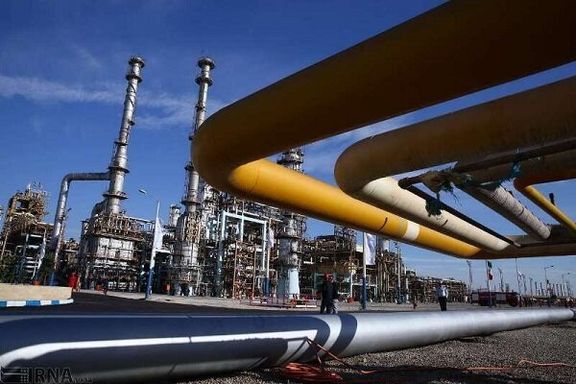
An oil refiner from India has started negotiations with the Islamic Republic to resume crude imports as soon as the nuclear deal is finalized.
Reuters cited an Indian refining source on Thursday that the Indian company is in talks with Iran for sourcing its oil, but the sources declined to be identified due to sensitivity of the matter.
India, which used to be Iran's No. 2 customer, halted oil imports in 2019 after former US President Donald Trump withdrew from the nuclear deal and re-imposed sanctions on Tehran's oil exports.
According to the unnamed source, New Delhi is waiting for more clarity on the nuclear deal, which apparently is close to tangible results.
A new deal can potentially pave the way for more oil supplies on global markets and soften prices about $5-10 a barrel, because Iran can contribute five percent to the world’s crude volume.
Earlier on Thursday, Japanese oil and energy corporation ENEOS announced its readiness to resume oil imports within two to three months of any revival of the 2015 Iran nuclear deal.
Tsutomu Sugimori, chairman of Japan’s largest refiner, said Thursday that ENEOS would not be able to resume Iranian imports immediately as it needed to set up insurance and arrange shipping. He called a two to three-month period a “possibility.”
Also, in preparation for the possible easing of US sanctions, Iran and South Korea, another major Iranian oil customer before 2018-19, opened detailed talks on freeing Tehran's money frozen by Korean banks fearful of punitive US measures.
as/ms
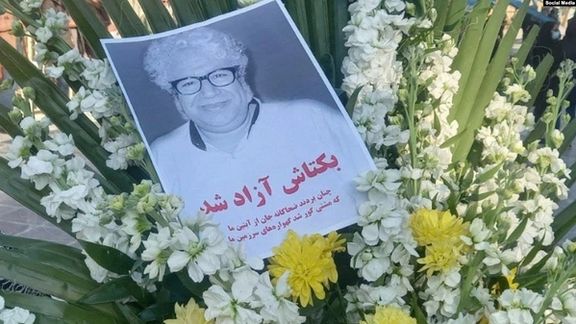
Persian-language television channels Iran International and Voice of America Thursday aired a documentary about the life of Baktash Abtin, an Iranian poet who died in custody in January.
The documentary was made by award-winning filmmaker Mohammad Rasoulof, himself arrested several times and had his passport confiscated. It aired Thursday evening Tehran time.
Earlier in the day, security forces disrupted ceremonies marking the 40 days since Abtin died of Covid-19 complications following a medically induced coma after he was denied timely treatment by officials at Evin prison, Tehran.
Abtin died in hospital after he was transferred there from prison.
The film, "Intentional Crime," related the life story of the filmmaker and poet through conversations with his friends and family, and examined his final days in jail. Abtin was sentenced to six years in prison in 2019 after conviction for “illegal assembly and collusion against national security" and "spreading propaganda against the state." He had published documents about the history of the Writers’ Association and made comments about censorship.
Some prisoners wrote an open letter in January portraying Abtin’s death as the continuation of the so-called “chain murders,” a series of killings in 1988–98 carried out by vigilantes with links to Iranian intelligence. The letter attacked “inaction” by international human rights organizations over his case.
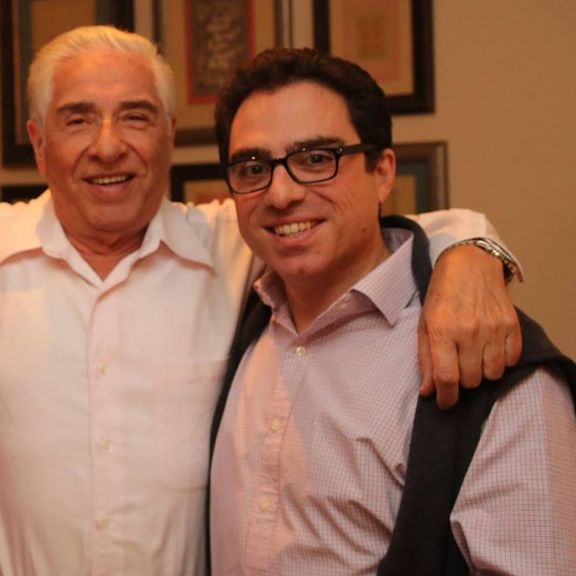
A website in Tehran has published an article by Siamak Namazi, an Iranian American jailed in Iran since 2015, amid news that Iran and the United States are holding talks for a possible prisoner exchange.
The article titled "Why Can't We Win the Trust of Iranian Expatriates?", appeared in Ensaf news and elaborated on reasons why the Islamic Republic has failed in its efforts to convince Iranians living abroad to return to their country.
"Despite all enthusiasm shown by various administrations to attract Iranian expats and use their huge political, scientific & economic capacities, none of them has achieved any success. On the contrary, Iranian expats have given the Raisi administration and its warm invitations the cold shoulder,” Namazi wrote.
News emerged from various sources on Thursday that the US and Iran have been holding talks parallel with nuclear negotiations in Vienna over the faith of Westerners held in on trumped-up charges.
After Siamak Namazi's arrest, his elderly father traveled to Iran in 2016 to help him but he was also detained on vague accusations, like his son who was accused of collaboration with a foreign country.
"Iranian officials have rather increased the mistrust. For instance, the Rouhani administration implemented plans to improve its ties with expatriates, but certain security forces interpreted it in a very negative way. And the heavy price was finally paid by dual nationals and their families."
Namazi added that expats will not simply trust officials who claim all barriers for their return have been removed, while they fail to recognize existing risks.
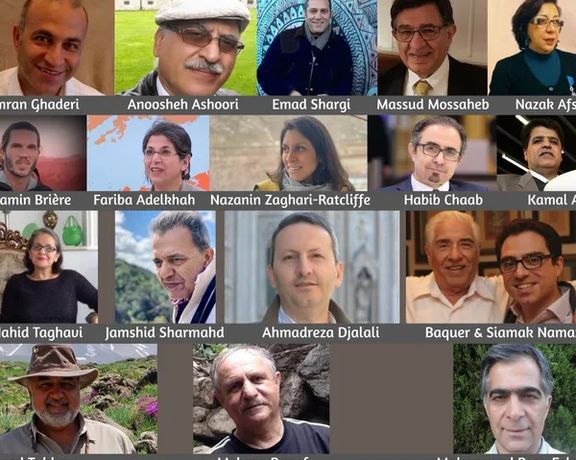
A Western source close to indirect talks between Iran and the United States confirmed to Iran International that release of Western prisoners is part of the overall negotiations.
The source said that exchanging prisoners is not part of the final text of the agreement but is part of the ongoing negotiations, in parallel with nuclear talks.
Earlier, Reuters reported some details about a draft agreement being completed in Vienna and quoting diplomatic sources who said that release of Western prisoners held in Iran was one of the first steps in case a deal is finalized.
Russia’s chief envoy, Mikhail Ulyanov, however, told Iran International that exchanging prisoners is not part of the JCPOA negotiations. The new information received is a confirmation that a prisoner exchange is part of the overall talks, but as Ulyanov indicated, not part of the official draft text charting a return to the JCPOA.
Iran has detained several Westerners and dual nationals on spurious charges, in what human rights organizations have called 'hostage taking'. In the past Iran has traded such prisoners for money or to free Iranians jailed in the West for sanctions violations.